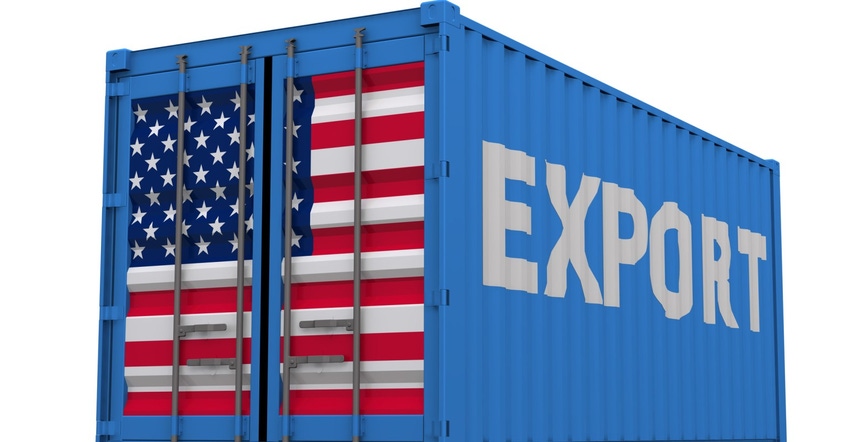
Trade matters to farmers, and the proper policy to encourage that trade will continue to be paramount for policymakers to hear. In the good times and the bad, farmers need to take the message of the importance of trade to policymakers. And this week, some bold farmers have done just that.
In 2021, exports of U.S. farm and food products to the world totaled $177 billion, topping the 2020 total by 18% and eclipsing the previous record, set in 2014, by 14.6%, according to the final 2021 trade data published by the Department of Commerce in February. Worldwide exports of many U.S. products, including soybeans, corn, beef, pork, dairy, distillers grains and pet food, also reached all-time highs.
On Thursday, Agriculture Secretary Tom Vilsack was joined in Iowa by Rep. Cindy Axne, D-Iowa, and U.S. Trade Representative Ambassador Katherine Tai at Sam Spellman’s family-owned and operated farm in Woodward, Iowa, and a roundtable at the Iowa State Fair that included a discussion on ag trade policy.
Steve Noah, president of the Board of Farmers for Free Trade, shared that there remain big challenges on the ag trade front.
“Since the U.S. pulled out of the Trans-Pacific Partnership, the trade world has not stood still. Our competitors have been entering into trade deals left and right. Those agreements are now putting U.S. food and ag products at a competitive disadvantage. It’s hard to sell your products when farmers from other countries can compete on price,” Noah says.
Noah called on the administration to take action to open new markets and address tariffs and retaliatory tariffs. “As we all know, at the beginning of this year, USDA estimated that retaliatory tariffs have cost American farmers $27 billion in lost ag exports.”
Axne said the comments on offering a “humanizing look at trade” was something she heard very strongly during her visit with Vilsack and Tai.
“We’ve got to continue to support these farmers because we’re providing the world with the food and fuel they need,” Axne says.
The House Agriculture Committee has held a series of farm bill listening sessions around the country. Earlier in the week, on Tuesday, Aug. 16, Rep. Cheri Bustos, chairwoman of the subcommittee on general farm commodities and risk management, was at the Illinois State Fair to hear from her own farmers about issues of importance. After hearing from farmers, my colleague Holly Spangler asked if there was something Bustos had not heard in other states that she did during Illinois.
Busto’s response, “This is the first time in any of our sessions that we’ve had throughout the country where the need for trade promotion has come up some prominently.”
Bustos says she knows why trade is so important and was front of mind for Illinois farmers as Illinois farmers benefit from three major rivers that can get their products and commodities out to the world market. A pork farmer shared that 30% of U.S. pork is exported. And anywhere from 50 to 60% of Illinois corn and soybeans are exported.
“I think getting trade right and always looking for additional trade opportunities is really, really important to Illinois. And I think that was probably one of the major takeaways,” Bustos told Spangler.
Trade does not have to be a partisan issue. And both Bustos and Axne represent farmers on behalf of the Democratic party. Continue to make your voice heard. Members on both sides of the aisle need to continue to hear this message.
About the Author(s)
You May Also Like






